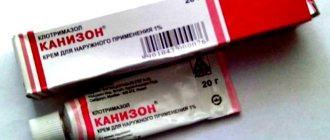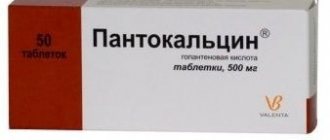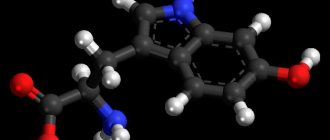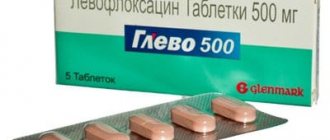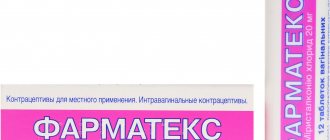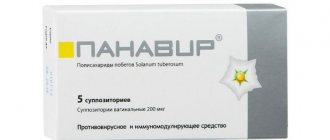5 mg tablet 10 mg tablet 7-14-21-28 mg cap,sprinkle,ER 24hr dose pack 2 mg/mL solution
Trade names in Russia
Akatinol Memantine, Noodzheron, Maruxa, Memantinol, Memantal, Memantine, Memantine Canon, Memaneurin, Memantine-Richter, Memantine hydrochloride, Memikar, Alzeim, Memantine-TL
Release form
- Tablets: 10 mg, 20 mg
- Oral drops 10 mg/ml
- Oral dispersible tablets: 10 mg, 20 mg
Indications
◊ Recommendations of the Russian Ministry of Health
F00.0 Dementia in early onset Alzheimer's disease
F00.1 Late-onset dementia in Alzheimer's disease
F00.2 Dementia in Alzheimer's disease, atypical or mixed type
F00.9 Dementia in Alzheimer's disease, unspecified
◊ FDA recommendations
G.30 Alzheimer's disease
◊ EMA recommendations
G.30 Alzheimer's disease
◊ Using Off-label
- Vascular dementia
- Dementia with Lewy bodies
- Frontotemporal dementia
- HIV-associated dementia
- Multiple sclerosis
What's in the package?
(German) draws attention: the marked cardboard packaging contains instructions for use, describing in detail the features of using the medication, as well as blisters with tablets.
Each tablet is white, oblong, convex on both sides. Each side has a score that allows the tablet to be divided in half. The tablets are packaged in a blister with the days of the week written on the reverse side. One package contains three blisters of 10 capsules, that is, 30 tablets. They are designed for a course lasting 30 days at a dosage of one capsule per day. If the internal contents are different, it is probably a counterfeit medicine. The manufacturer draws the attention of buyers: they must beware of counterfeits and purchase the drug only from a certified pharmacy. It is quite expensive, and if you find a price at any point of sale that is noticeably lower than the market average, you should not rush. Remember that illegal drugs are not only useless, but can also pose health risks.
Mechanism of action and pharmacokinetics
Memantine acts as a non-competitive antagonist of NMDA receptors, preferentially binding to cation channels gated by NMDA receptors. Long-term increases in glutamate levels in the brains of patients with dementia counteract the voltage-gated block of NMDA receptors by Mg2+ ions and promote a continuous influx of Ca2+ ions into cells, which ultimately leads to neuronal degeneration. Studies show that memantine binds to NMDA receptors more effectively than Mg2+ ions, and thereby effectively blocks the long-term influx of Ca2+ ions through the NMDA channel, maintaining transient physiological activation of the channels with higher concentrations of glutamate released into the synapses. Thus, memantine protects against chronically elevated glutamate concentrations. Memantine also exhibits serotonin (5-HT3) receptor antagonistic activity with potential similar to that of the NMDA receptor, and reduced nicotinic acetylcholine receptor antagonistic activity. This drug does not bind to γ-aminobutyric acid (GABA), benzodiazepine, dopamine, adrenergic, histamine, glycine, or voltage-gated calcium, sodium, or potassium receptors.
- Little metabolized;
- It is excreted almost unchanged in the urine;
- The half-life is approximately 60-100 hours; peak plasma concentrations after 3-7 hours [3].
- Minimal inhibition of CYP450 enzymes.
Drug interactions
Combined use with dopamine receptor agonists and m-anticholinergic blockers increases their effect. The effectiveness of barbiturates and neuroleptics, on the contrary, is weakening. The dosage of simultaneous therapy with dantrolene and baclofen should be selected with caution. Do not prescribe when using phenytoin, amantadine, ketamine, dextromethorphan. An increase in blood levels of cimetidine, procainamide, quinidine, kinine and nicotine was noted during the course of treatment with Memantine. The concentration of hydrochlorothiazide decreases.
- Sausages in batter - recipes with photos. How to cook fried sausages in batter in a frying pan or on a stick
- How to quickly get rid of worms at home
- Mastopathy - how to treat mammary glands
Treatment regimen
◊ Dosage and dose selection
- 10 mg twice daily
- 28 mg once daily (long-acting)
- Initially 5 mg/day, increase by 5 mg every week; a dose greater than 5 mg should be divided into parts; the maximum dose is 10 mg twice a day [1].
- Long-acting: initially 7 mg once daily, can be increased by 7 mg weekly, maximum dose 28 mg once daily [1].
◊ How quickly it works
Memory improvement is not expected, and it will take months for the condition to stabilize [1].
◊ Expected result
Slows down the development of the disease, but does not stop the degenerative process.
◊ If it doesn't work
- Change the dose, switch to a cholinesterase inhibitor (galantamine, donepezil, rivastigmine) or add a cholinesterase inhibitor.
- Reconsider the diagnosis to rule out depression or non-Alzheimer's dementia [1].
◊ How to stop taking it
- There were no cases of withdrawal syndrome.
- Theoretically, discontinuation of dosage may cause memory impairment and changes in behavior that may remain uncorrected after resumption or initiation of dosage [1].
◊ Treatment combinations
- Atypical antipsychotics for behavior correction;
- Antidepressants for depression, apathy, loss of interest;
- Can be combined with cholinesterase inhibitors;
- Carbamazepine, oxcarbamazepine for behavioral disorders;
Price
The cost of the drug varies depending on the pharmacy chain, dosage and number of tablets in the package. You can buy Memantine with a prescription from a doctor. The medicine is included in the list of vital drugs, the price of which is regulated by the Government, for its availability to patients. The price of 30 tablets with a dosage of 10 mg in Moscow pharmacies is:
| Commercial network | Cost, rubles |
| Eapteka.ru | 1480 |
| zdravzona.ru | 1652 |
| Piluli.ru | 1644 |
| Europharm | 1699 |
| Hello | 1700 |
Special patient groups
◊ Patients with kidney problems
- No special dose selection is required.
- In severe renal failure, reduce the dose.
◊ Patients with liver disease
No special dose selection is required.
◊ Patients with heart disease
No special dose selection is required.
◊ Elderly patients
The same pharmacokinetics as in young patients.
◊ Children and teenagers
The use of memantine has not been studied.
◊ Pregnant women
- Risk Category B – animal studies have not shown any risk of adverse effects on the fetus, and there have been no adequate studies in pregnant women;
- Not recommended for pregnant women or those preparing to conceive [1].
◊ Breastfeeding
Memantine is not known to pass into breast milk, but all psychotropic drugs pass into breast milk. It is recommended that you stop taking memantine or stop breastfeeding [1].
When is it relevant?
It is generally accepted that Akatinol Memantine is most often prescribed to older people, but diseases affecting the nervous system and brain have become “younger” in recent years. If you analyze the description of the medication, it becomes clear that it has a positive effect on the body for a wide range of diseases. I would especially like to mention Parkinson's disease, spasticity of the skeletal muscles, and dementia.
You can use the drug "Akatinol Memantine" (of course, under the supervision of your doctor) to improve memory and ability to concentrate. If a patient experiences a sharp decrease in interest in the world around him, loss of the will to live, Akatinol Memantine can become one of the key medications when the doctor plans therapy.
Side effects and other risks
◊ Mechanism of side effects
Presumably due to excessive effects on NMDA receptors.
◊ Side effects
- Dizziness, headache;
- Constipation;
- Dangerous side effects: seizures;
- Weight gain: no;
- Sedation: no, but weakness may occur [1].
◊ What to do about side effects
Wait; Reduce the dose, switch to another drug.
◊ Long-term use
After 6 months, treatment may no longer slow the progression of Alzheimer's disease [1].
◊Addiction
No.
◊ Overdose
- There were no deaths.
- Anxiety, psychosis, visual hallucinations, drowsiness, stupor, loss of consciousness.
What is it made of?
The effectiveness of the drug is due to the active substance around which the drug formula is built - memantine. To simplify absorption by the body, the product is available in the form of tablets coated with a specialized coating. There is “Akatinol Memantine” 10 mg on sale, that is, each capsule contains 10 mg of the active ingredient. An alternative release option is liquid form. Akatinol Memantine drops contain 10 mg of the active ingredient per milliliter of the drug. Below we will talk about the drug produced in tablets, unless otherwise specifically stated.
In addition to the active component, each capsule contains excipients that increase the effectiveness of the medication and improve its absorption in the body. The composition of Akatinol Memantine includes lactose, cellulose, talc, magnesium stearate and colloidal silicon dioxide. Attention to the composition should be paid especially to those patients who are intolerant to at least one of these substances. In case of hypersensitivity or an allergic reaction of the body to something from the composition of Akatinol Memantine, it is prohibited to use the medication.
Expert advice
- One of two medications recommended for severe Alzheimer's disease;
- The action of memantine is similar to the natural inhibition of NDMA receptors by magnesium, so memantine is a kind of “artificial magnesium.”
- Theoretically, memantine's NMDA antagonism is strong enough to reduce the excitation of glutamate receptors characteristic of Alzheimer's disease, but not strong enough to affect the use of glutamate for plasticity, learning and memory.
- Has a related structure to amantadine, which is also a weak NMDA antagonist
- Memantadine is well tolerated and rarely causes side effects
- The consequences of 5-HT3 receptor antagonist activity have not been studied, but this may be why so few gastrointestinal side effects are observed [1]
Contraindications
It is not recommended to take the drug in cases of personal intolerance to the components included in its composition or confusion. Due to possible harm and deviations in embryo development, the medicine is not prescribed to pregnant and lactating women. The age group under 18 years old belongs to the category of patients for whom the drug is prohibited, or is permissible for use under medical supervision in individual cases. Use with caution for kidney diseases - their function and the time it takes for the active substance to be eliminated from the body may be disrupted.
What can be replaced?
On average, the cost of one package of “Akatinol Memantine” containing 30 capsules is one and a half thousand rubles. Purchasing a package containing 90 capsules is a little more profitable - such a box will cost approximately 4,500 rubles. Many patients, seeing such frankly frightening price tags, ask the doctor whether it is possible to replace the prescribed drug with something else. Cheaper analogues of Akatinol Memantine are available for sale, but not all of them are available in each specific case. This means that replacement should always be made in consultation with your doctor. Remember that the patient may be intolerant to the components of a similar drug, or the specificity of the disease is such that another drug will not show the required effectiveness.
Analogues of "Akatinol Memantine" are cheaper:
- “Memantine” (costs about one hundred rubles per package);
- “Memantine-Richter” (the cost of one pack is about 400 rubles);
- "Memantine Canon" (costs a little more than half a thousand);
- "Memantal" (cost varies about 650 rubles).
Not at all!
The instructions for Akatinol Memantine contain information about contraindications. As mentioned above, restrictions on the possibility of use are imposed by increased sensitivity or intolerance to at least one of the substances present in the composition of the medication. Also, you should not use the drug if the patient has not reached the age of majority. This limitation is due to the lack of accurate data on the effect of the drug on the children's body. However, at his own risk, the doctor may prescribe a remedy for autism or other similar disorders.
You should also not use Akatinol Memantine if kidney dysfunction or impairment is diagnosed. The product is not suitable for treating women during pregnancy and lactation.
Can it be used simultaneously with other drugs?
When used simultaneously with some drugs, it is possible to enhance or weaken any effect, so it is very important to inform the attending physician about all medications taken by the patient (both long-term and short-term, based on symptoms). The doctor can assess what mutual influence the drugs will have on each other, or will confirm that there is no effect and you can safely use everything that the patient is used to, and in addition - Akatinol Memantine.
The instructions for use contain mention of dopamine antagonists, as well as drugs with anticholinergic properties: the drug in question enhances their effectiveness. If you simultaneously use a medication containing memantine and antipsychotics, barbiturates, these drugs partially lose their effectiveness. The effectiveness of using dantrolene and baclofen changes in an unpredictable way (both in the direction of increasing or decreasing effectiveness). If a patient is undergoing therapy with these drugs, the doctor selects the dose, constantly monitoring the patient's condition.
The manufacturer does not recommend using Akatinol Memantine in combination with drugs containing dexamethorphan, ketamine, amantadine. Also, during treatment with medications containing memantine, the amount of nicotine and kinine in the blood plasma increases. Accumulation of kinidine and procainamide is often observed. There may be an increase in the relative normal concentration of cimetidine supplied with medications. But the amount of hydrochlorothiazide under the influence of memantine may decrease.
Special case
People with Alzheimer's disease, as well as those diagnosed with dementia (moderate or severe), usually require special attention from the attending physician. As a rule, such patients, due to health problems, are not able to drive a car; they are contraindicated from working with complex machines and mechanisms.
Additionally, Akatinol Memantine makes adjustments to the situation, since the main active substance of the drug affects the reaction rate. If a person is undergoing therapy as an outpatient, they should be prepared to spend their time outside the hospital with greater caution. If the patient encounters mechanisms or operates a machine, this must be done with extreme caution so as not to put himself at risk again.
Overdose
There is limited information about memantine overdose.
In this condition, adsorbents (activated carbon), gastric lavage, urine acidification are prescribed, after which symptomatic treatment is carried out. If necessary, forced diuresis is prescribed. Memantine does not have a specific antidote.
When taking Memantine at a dose of 200 mg once or at a dose of 105 mg for 3 days, the absence of overdose symptoms or the appearance of diarrhea, weakness, and fatigue was noted.
When using the drug in a dose of less than 140 mg or taking in an unknown amount, the following undesirable effects were observed: diarrhea, vomiting, vertigo, dizziness, agitation, anxiety, drowsiness, confusion, hallucinations, gait disturbance.
The most severe overdose has been reported with memantine in doses over 2000 mg, with reactions such as coma within 10 days, followed by agitation and diplopia. In this case, the patient was prescribed symptomatic therapy and plasmapheresis. After these measures, the patient recovered without further complications.
A serious overdose has also been described with a single dose of 400 mg of the drug with the occurrence of disorders mainly from the central nervous system: drowsiness, anxiety, stupor, visual hallucinations, psychosis, unconsciousness, seizures. The patient survived and recovered without adverse effects.
Features of taking the drug
Typically, Akatinol Memantine is prescribed for regular use for up to six months. The doctor decides whether it is worth extending treatment with this medication further, focusing on the patient’s condition and progress. The product in Germany is available in two forms - tablets and drops. In Russia, only tablets can currently be purchased, since the drop form has not yet passed the registration procedure as a medicinal product. Sales are permitted only by prescription, so the product cannot be purchased online. Please note: if some site offers to buy Akatinol Memantine without a prescription (and even at a price lower than the market average), you should be extremely critical of such an offer.
If Akatinol Memantine is used to treat people with impaired functioning of the kidney system, the dose can be reduced. The treatment process itself must be constantly monitored, including laboratory tests. This will allow you to identify negative reactions in the body, if any, in time. In rare cases, if it was decided to use Akatinol Memantine in childhood (if the doctor has a sufficiently compelling justification for such therapy), the daily dose is prescribed at 500 mcg/kg.
What do people say?
Most of the reviews that can be found on the Internet are information not from those who were treated with Akatinol Memantine tablets, but from their relatives, so the situation is presented through third parties. The data may be slightly distorted, and this must be understood when analyzing the information. Often, users of the World Wide Web say that Akatinol Memantine was prescribed to close relatives (grandparents). They note that the effectiveness of the tablets was quite high.
Others also indicate that a positive result could only be achieved with prolonged therapy. Internet users mention periods ranging from a year to several years - during this period, the sick relative gradually became better, after which it was possible to maintain the level of progress by taking a therapeutic dose. If you believe the reviews, even people whose negative impact on the brain caused problems with orientation in their own home began to feel better after a month or several.
Reviews about Memantine
According to the few reviews of Memantine, it is an effective treatment for moderate to severe dementia and cognitive impairment. According to doctors, the drug stops the progress of Alzheimer's disease in the initial stages, and also shows good results when used in pediatric practice for the treatment of intellectual development disorders and attention deficit hyperactivity disorder (ADHD). Treatment is recommended, especially at the beginning of the course, under constant supervision.
In some reviews, patients, however, note the lack of effect from taking Memantine. The most frequently described adverse reactions during therapy are sleep disorders, loss of appetite, anxiety, agitation, and excitability in elderly patients. There are references to severe disorders, such as the appearance of psychotic symptoms such as delirium. The disadvantages of the drug also include its high cost.
What if there is too much?
You may encounter unpleasant results from taking Akatinol Memantine if too much of the active substance enters the body (for example, by mistake). As a rule, this is manifested by the side effects described above (and some others that occur very rarely), but the form is much more pronounced than when taking a normal dose.
To get rid of the negative result, you will have to endure gastric lavage. Taking activated carbon, taking into account the patient’s weight, will have a good effect. It is possible to practice symptomatic therapy under the supervision of the attending physician if the need arises.
It's possible, but very carefully
The instructions for "Akatinol Memantine" also contain a description of those cases when the drug can be used, but under the supervision of the attending physician and with constant monitoring of the patient's condition. As a rule, in such a situation, they try to find a replacement drug. If this is not possible, the possible risks and positive effects of the medication are analyzed, on the basis of which a final decision is made in favor of therapy.
So, you can take Akatinol Memantine carefully if you are diagnosed with:
- myocardial infarction;
- epilepsy;
- tendency to seizures;
- thyrotoxicosis;
- incorrect, insufficient work of the heart muscle.
How to use?
The doctor tells you how to take Akatinol Memantine correctly at the appointment, and at the same time issues a prescription for the purchase of the medicine (this strong drug is not commercially available). To clarify the data, you can look at the instructions - all possible schemes for using the tablets are described here.
The medicine is taken orally, it is advisable to combine it with the usual meal. The choice of dose is up to the doctor. Usually they focus on the severity of the disease, the characteristics of the body, and the age of the patient. Typically, the lowest possible dose is chosen at the beginning of therapy, which is then increased if a low level of effectiveness is observed. However, reviews of “Akatinol Memantine” clearly show that quite a few patients are satisfied with the minimal effect; as a rule, it is necessary to increase the concentration of memantine in the body in order to achieve a lasting pronounced therapeutic effect.

